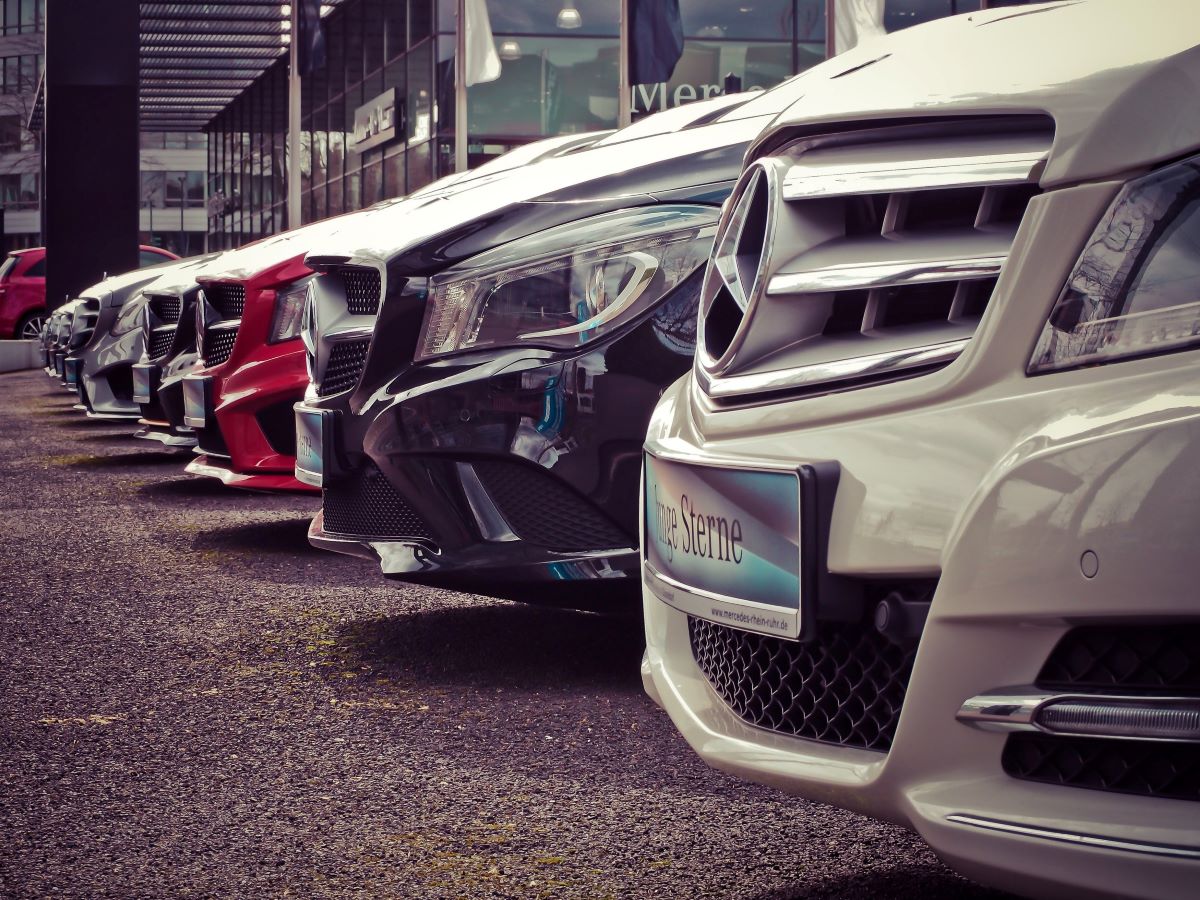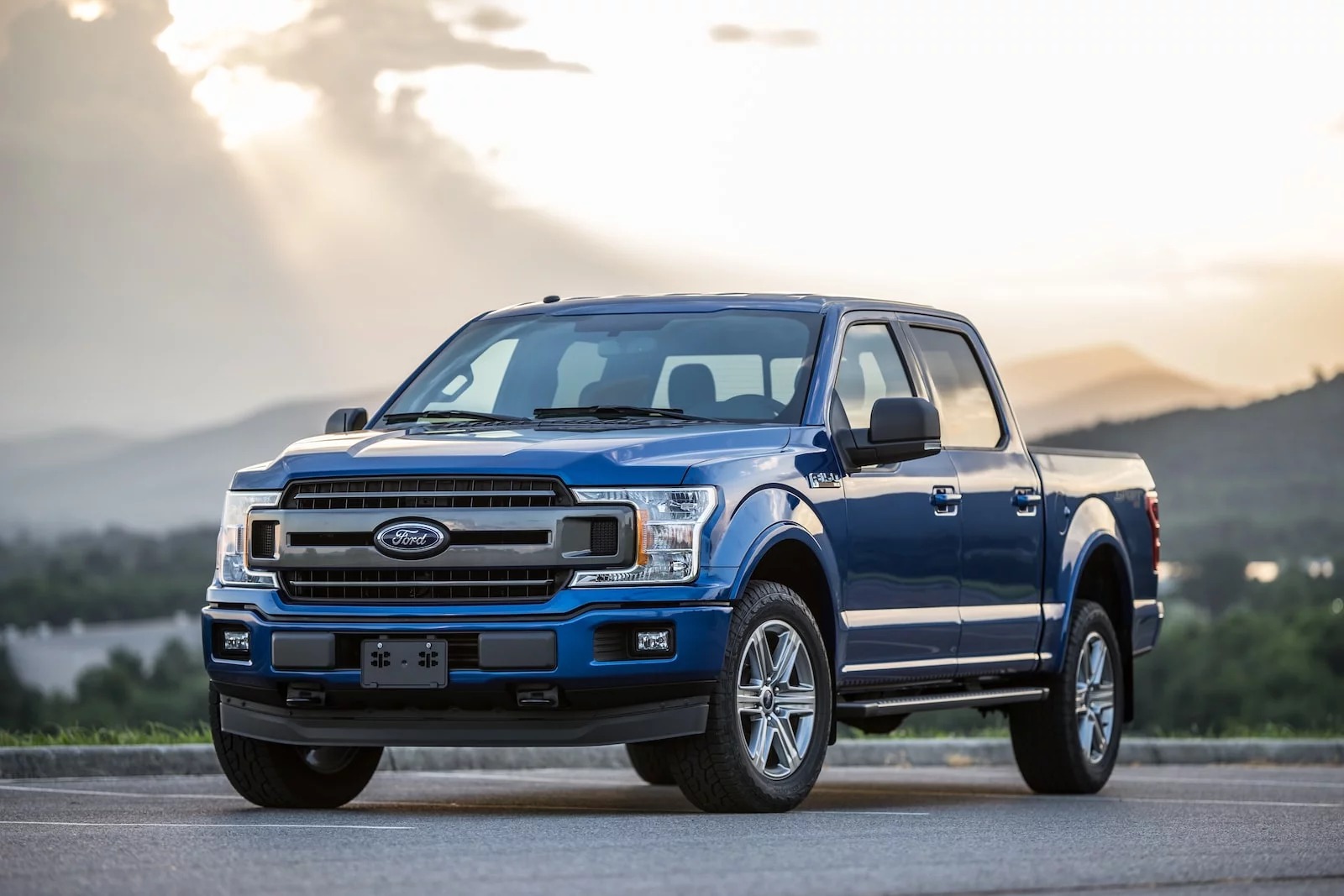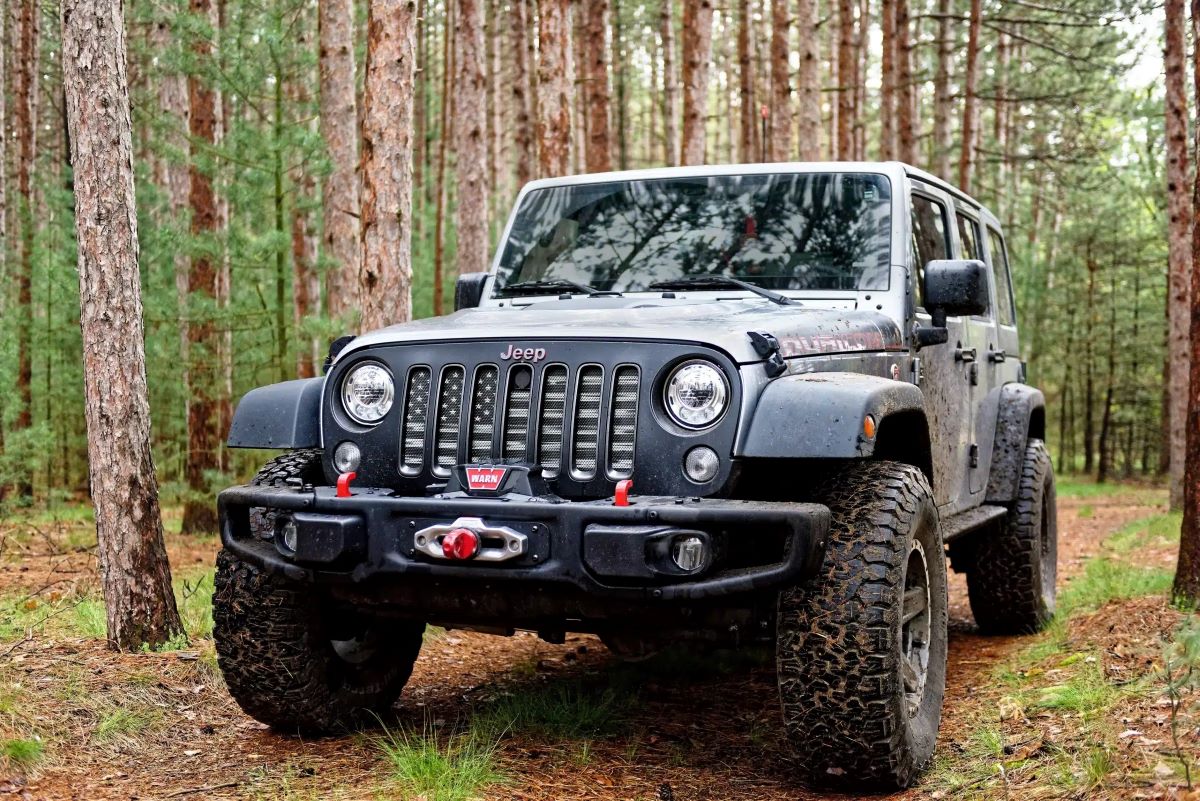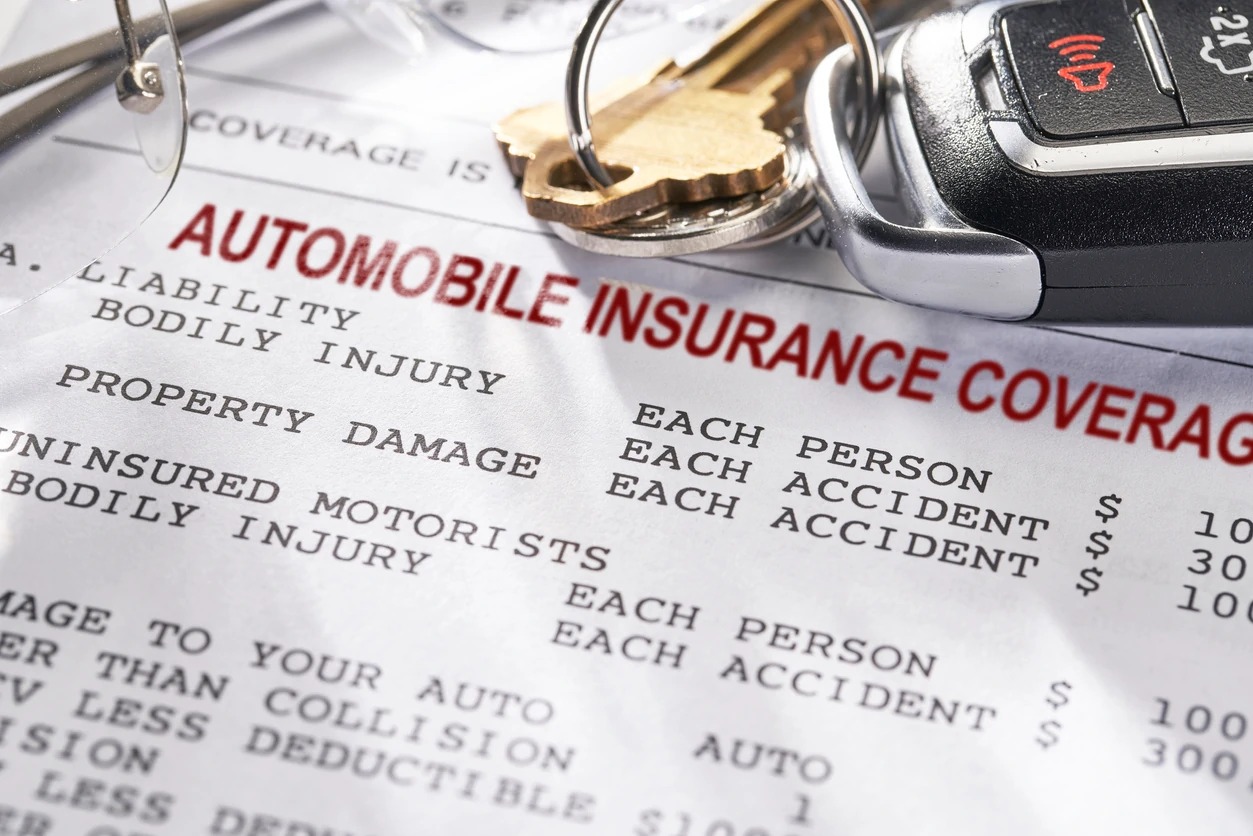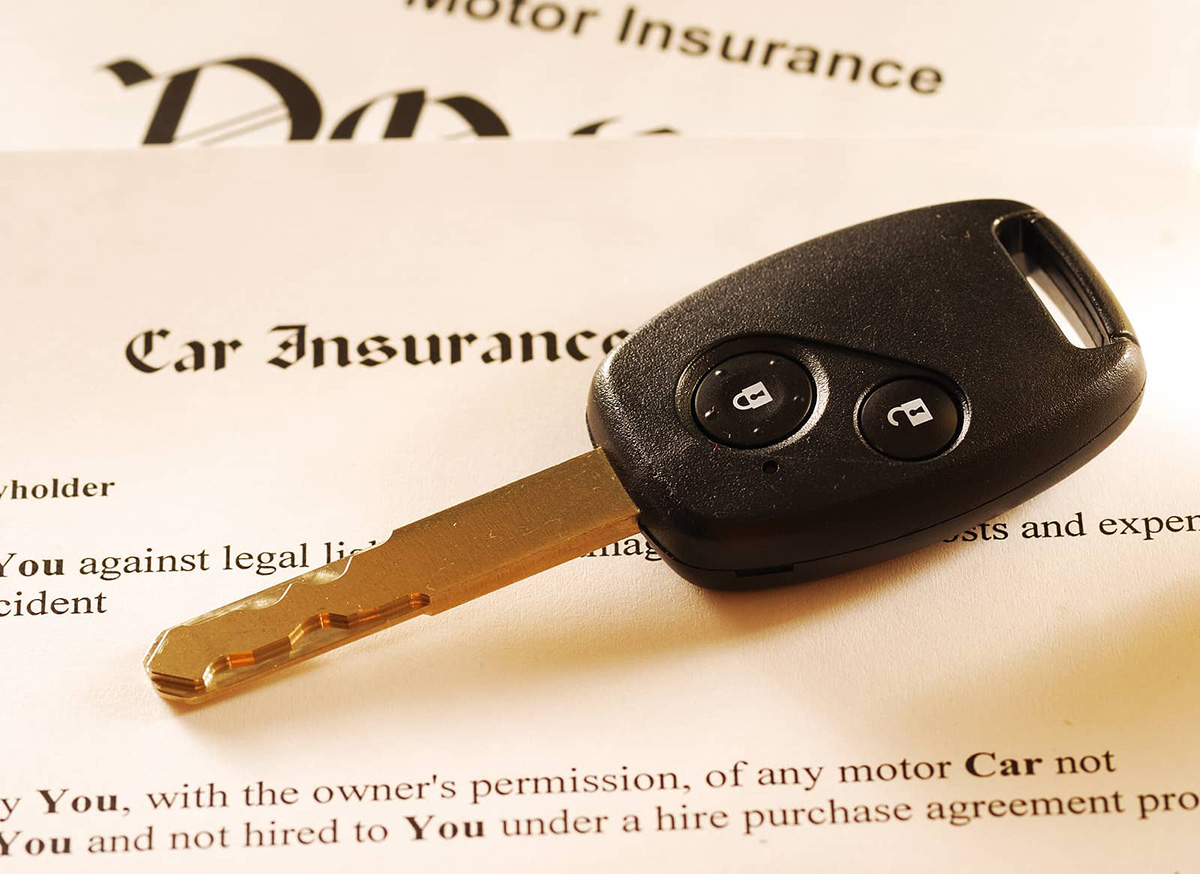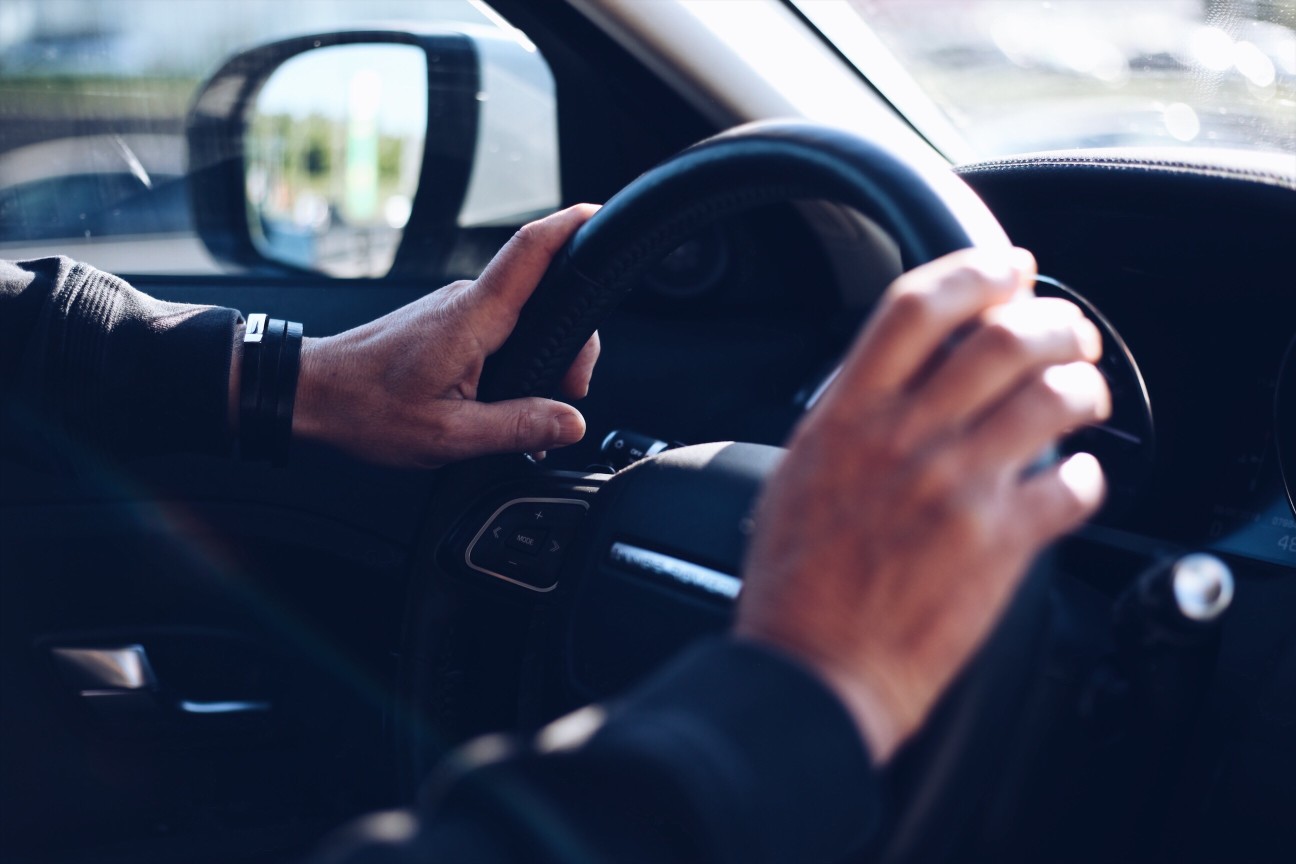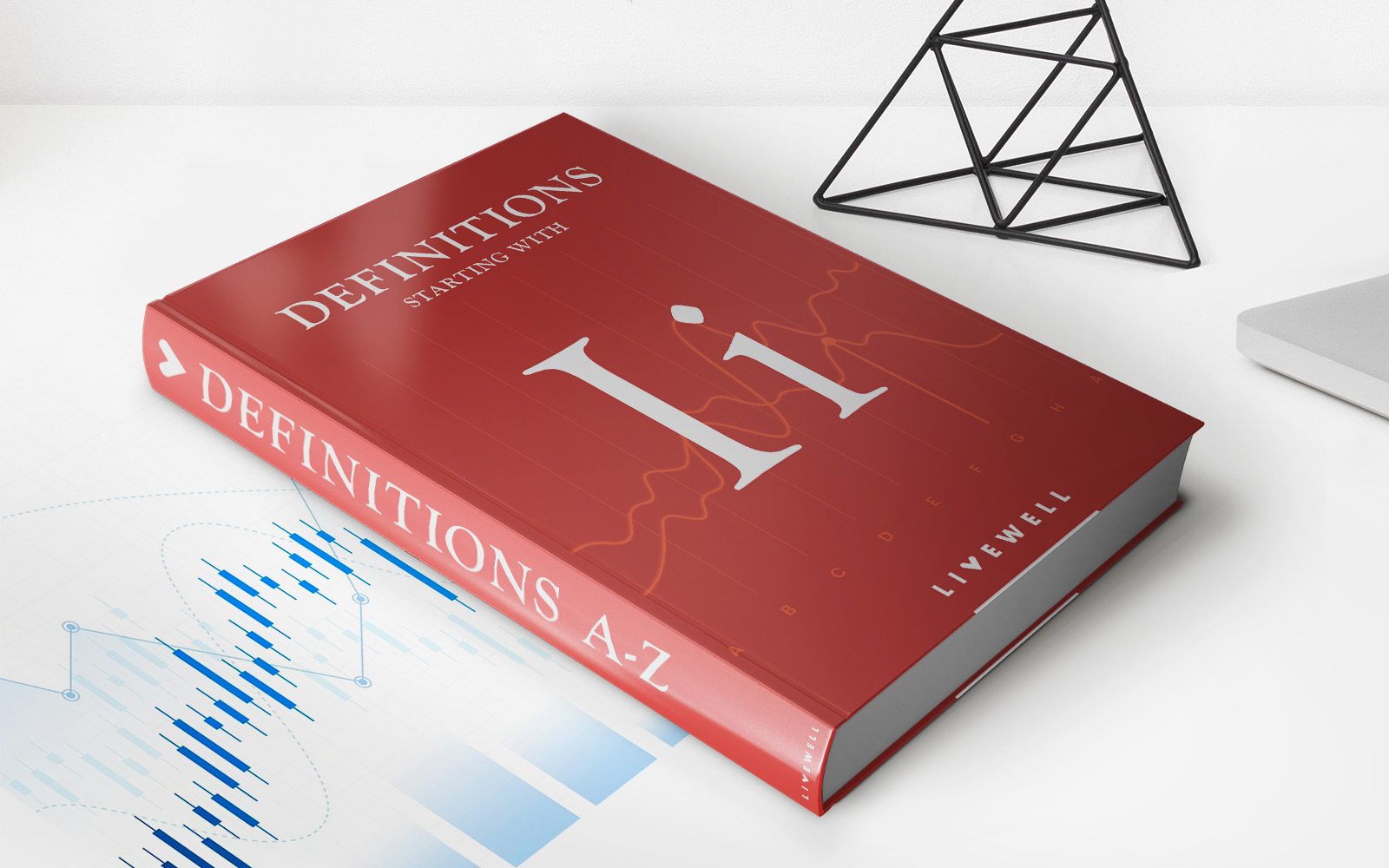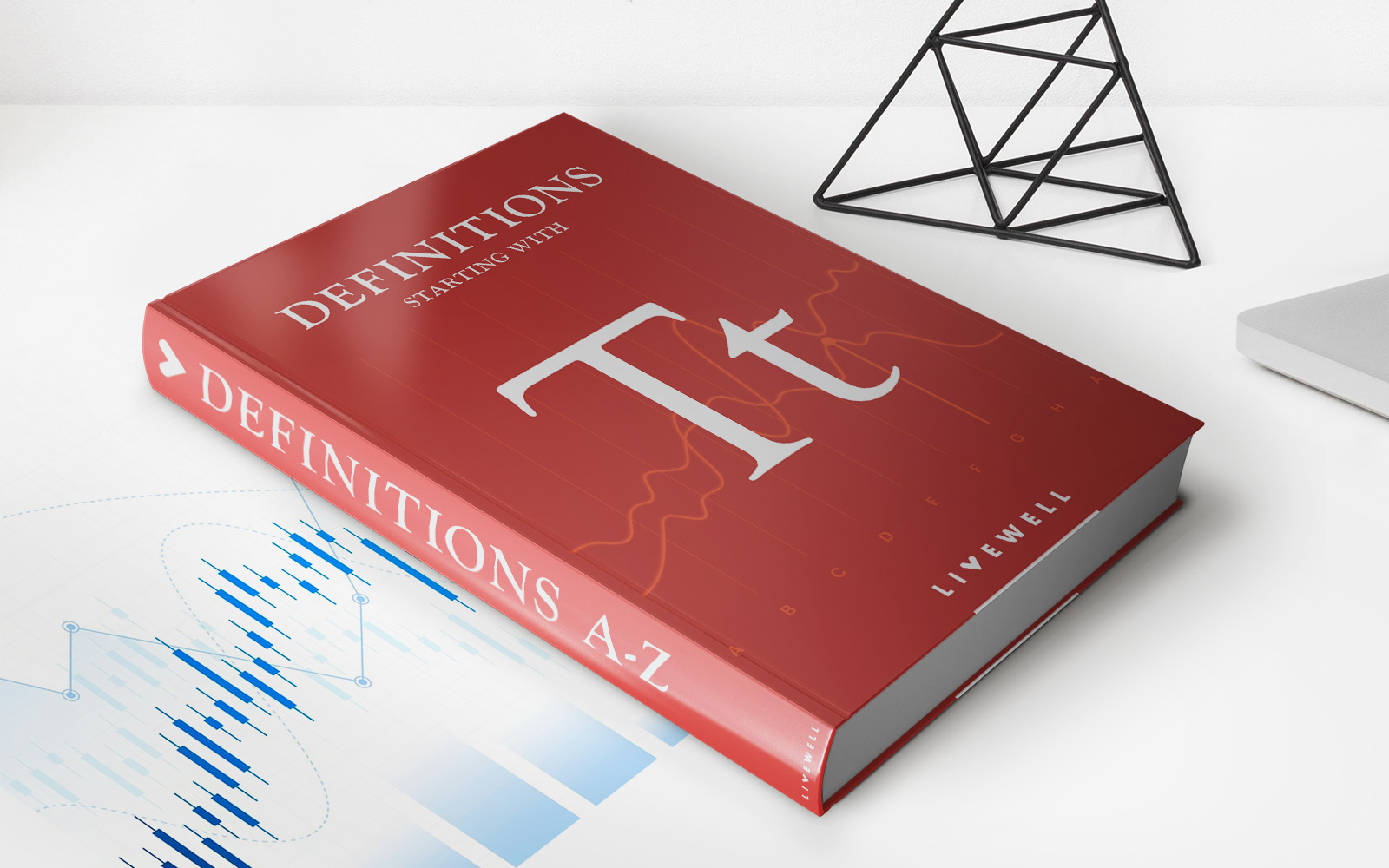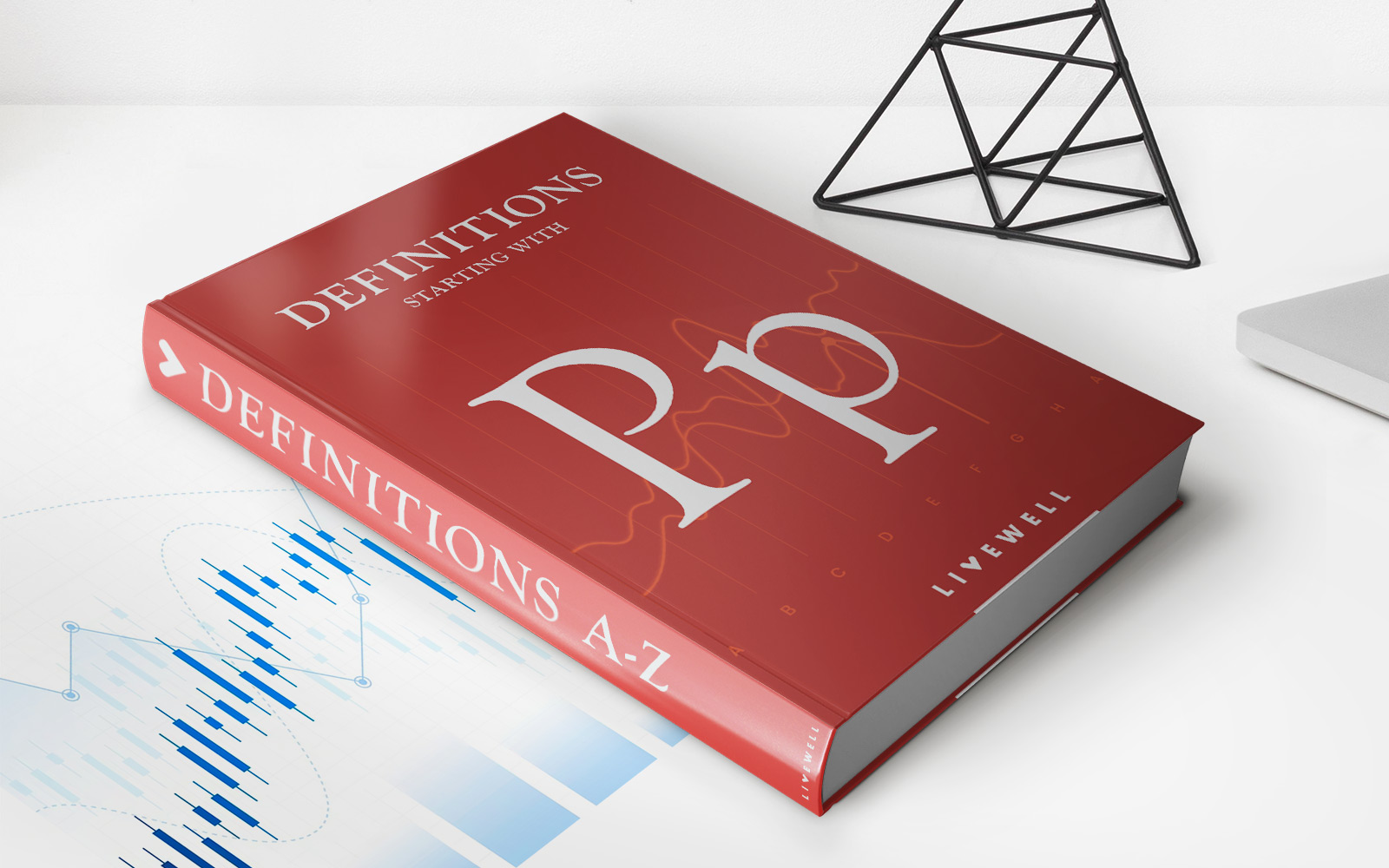

Finance
How Do I Get SR-22 Insurance Without A Car
Published: November 22, 2023
Looking to get SR-22 insurance without owning a car? Find out how to fulfill your legal requirements and navigate the finance aspect with our expert guide.
(Many of the links in this article redirect to a specific reviewed product. Your purchase of these products through affiliate links helps to generate commission for LiveWell, at no extra cost. Learn more)
Table of Contents
- Introduction
- Understanding SR-22 Insurance
- Reasons for Getting SR-22 Insurance Without a Car
- How to Obtain SR-22 Insurance Without a Car
- Option 1: Non-Owner SR-22 Insurance
- Option 2: Operator’s Certificate SR-22 Insurance
- Option 3: Borrowed Car SR-22 Insurance
- Considerations and Requirements for Getting SR-22 Insurance Without a Car
- Benefits of Obtaining SR-22 Insurance Without a Car
- Conclusion
Introduction
SR-22 insurance is a term that often comes up when discussing auto insurance requirements. It is a certificate of financial responsibility issued by an insurance company, verifying that an individual has the necessary insurance coverage to meet state requirements. While SR-22 insurance is commonly associated with individuals who have been convicted of a serious driving offense or have a history of traffic violations, there are situations where someone may need SR-22 insurance without owning a car.
Obtaining SR-22 insurance without a car may seem counterintuitive, but it is actually quite common. There are various reasons why someone might require SR-22 insurance even if they don’t own a vehicle. Perhaps they have had their driver’s license suspended or revoked due to a DUI or other serious traffic offense. In some cases, individuals may be required to obtain SR-22 insurance as a condition of obtaining a restricted or hardship license.
In this article, we will explore the reasons for needing SR-22 insurance without owning a car and discuss the options for obtaining it. We will also delve into the considerations and requirements associated with getting SR-22 insurance without a car. So, if you find yourself in a situation where you need SR-22 insurance without a vehicle, keep reading to learn more about how to navigate this process.
Understanding SR-22 Insurance
Before we delve into the specifics of obtaining SR-22 insurance without a car, it’s important to have a clear understanding of what SR-22 insurance actually is. As mentioned earlier, SR-22 insurance is not a separate type of insurance policy but rather a certificate of financial responsibility.
When someone is required to have SR-22 insurance, it means that they must provide proof to the state that they have the minimum amount of liability insurance coverage required by law. This certificate is typically filed by the insurance company directly with the Department of Motor Vehicles (DMV) or state regulatory agency.
The purpose of SR-22 insurance is to ensure that high-risk drivers, who have demonstrated a history of unsafe driving or have had their licenses suspended or revoked, maintain continuous coverage. The insurance company is obligated to notify the state if the policy is canceled or lapses, allowing the state to take appropriate action to protect the public.
It’s important to note that SR-22 insurance is not required in all states. Each state has its own rules and regulations regarding SR-22 filings, so it’s crucial to check with your state’s DMV or regulatory agency to determine if SR-22 insurance is necessary in your situation.
SR-22 insurance is typically required for a specific period of time, which varies depending on the state and the circumstances leading to the requirement. Common durations range from one to three years. During this period, it is essential that the individual maintains continuous insurance coverage to avoid any further legal consequences.
Now that we have a basic understanding of SR-22 insurance, let’s explore why someone might need it without owning a car and the options available for obtaining it.
Reasons for Getting SR-22 Insurance Without a Car
While SR-22 insurance is commonly associated with car owners, there are several reasons why someone might need SR-22 insurance even if they don’t own a vehicle:
- Licensed but don’t own a car: Some individuals may have a valid driver’s license but choose not to own a car. This could be due to various reasons such as opting for public transportation, relying on ridesharing services, or borrowing vehicles from friends or family. However, if they have a history of driving offenses or have had their license suspended or revoked, they may still be required to carry SR-22 insurance in order to have their driving privileges reinstated.
- License reinstatement: If someone has had their driver’s license suspended or revoked due to a DUI, reckless driving, or other serious traffic violations, they may need to fulfill certain requirements, such as obtaining SR-22 insurance, in order to have their license reinstated. Even if they do not currently own a car, they will still need to provide proof of insurance coverage to comply with the state’s regulations.
- Driving for employment purposes: Some individuals, such as truck drivers or delivery drivers, may be required to obtain SR-22 insurance even if they don’t own a vehicle. This is because their employer may insist on all drivers having the necessary insurance coverage, including an SR-22 filing, to mitigate any potential liability in case of an accident.
- Compliance with court or DMV orders: In some cases, individuals may be mandated by a court or the DMV to carry SR-22 insurance as a condition for obtaining a restricted or hardship license. This could be the result of certain legal obligations or requirements stemming from previous driving-related offenses.
Regardless of the reason, if you find yourself in a situation where you need SR-22 insurance without owning a car, there are options available to ensure you meet the necessary requirements. In the following section, we will explore the different ways to obtain SR-22 insurance without a car.
How to Obtain SR-22 Insurance Without a Car
If you find yourself in need of SR-22 insurance without owning a car, don’t worry – there are options available to meet this requirement:
- Option 1: Non-Owner SR-22 Insurance: Non-owner SR-22 insurance is designed specifically for individuals who don’t own a car but still need to fulfill their SR-22 insurance obligations. This type of policy provides liability coverage when you are driving a borrowed or rented vehicle. It offers financial protection in case you cause an accident while driving a vehicle that is not registered in your name.
- Option 2: Operator’s Certificate SR-22 Insurance: Operator’s certificate SR-22 insurance is a similar option to non-owner SR-22 insurance. It provides the necessary liability coverage when you are driving a vehicle that you don’t own. This type of policy is often chosen by individuals who frequently borrow or use various vehicles but don’t have a permanent or regular access to a particular car.
- Option 3: Borrowed Car SR-22 Insurance: If you frequently borrow a specific vehicle from a friend or family member, you can explore the option of obtaining a borrowed car SR-22 insurance policy. This type of policy will provide the necessary coverage for the vehicle you borrow, ensuring you meet the state’s requirements.
It’s important to note that the process of obtaining SR-22 insurance without a car is similar to obtaining traditional auto insurance. You will need to contact insurance providers and request quotes for non-owner or borrowed car SR-22 insurance policies. It’s advisable to compare multiple quotes and choose the policy that best fits your needs and budget.
When applying for SR-22 insurance, you will likely be asked to provide information about your driving history, such as any previous violations or accidents. The insurance provider will then file the SR-22 certificate with the appropriate state agency on your behalf.
Remember, it’s crucial to maintain continuous SR-22 insurance coverage for the duration specified by your state. Failure to do so can result in further penalties and consequences, such as license suspension or additional fines.
Now that you understand how to obtain SR-22 insurance without owning a car, let’s explore some important considerations and requirements associated with this process.
Option 1: Non-Owner SR-22 Insurance
If you are in a situation where you need SR-22 insurance but don’t own a car, one viable option is to get a non-owner SR-22 insurance policy. Non-owner SR-22 insurance provides liability coverage when you are driving a borrowed or rented vehicle, offering financial protection in case you cause an accident.
This type of policy is specifically designed for individuals who don’t have regular access to a car but still need to meet the SR-22 insurance requirements. Non-owner SR-22 insurance policies typically include the minimum liability coverage required by the state in which you reside.
When considering non-owner SR-22 insurance, here are a few key points to keep in mind:
- Liability coverage: Non-owner SR-22 insurance provides liability coverage for bodily injury and/or property damage caused to others in an accident where you are at fault. It does not provide coverage for any damages to the vehicle you are driving or medical expenses for yourself.
- Cost considerations: Non-owner SR-22 insurance policies tend to be less expensive than traditional auto insurance policies since they typically provide lower coverage limits. However, the actual cost may vary depending on factors such as your driving history, location, and the insurance company you choose.
- Minimum coverage requirements: When obtaining non-owner SR-22 insurance, it’s important to ensure that the policy meets the minimum liability coverage requirements mandated by your state. These requirements may vary, so make sure to check with your state’s DMV or regulatory agency.
- Additional coverage: While non-owner SR-22 insurance provides the necessary liability coverage, it does not include coverage for comprehensive, collision, or personal injury protection. If you frequently borrow or rent vehicles and want additional coverage, you may consider purchasing a separate non-owner policy or considering rental car insurance options.
It’s important to reach out to insurance providers to request quotes for non-owner SR-22 insurance policies. Comparing multiple quotes can help you find the most affordable and suitable policy for your needs.
Remember, maintaining continuous SR-22 insurance coverage is crucial to meet the requirements set by your state. Make sure to pay your premiums on time and notify the insurance company if there are any changes in your circumstances. Failure to maintain continuous coverage can result in the suspension of your driving privileges and additional penalties.
Now that you understand the option of non-owner SR-22 insurance, let’s explore another option for obtaining SR-22 insurance without a car.
Option 2: Operator’s Certificate SR-22 Insurance
If you need SR-22 insurance but don’t own a car and frequently use different vehicles, an operator’s certificate SR-22 insurance policy may be the right choice for you. This type of policy provides the necessary liability coverage when you are driving a vehicle that you don’t own.
An operator’s certificate SR-22 insurance policy is specifically designed for individuals who need to meet SR-22 insurance requirements but don’t have regular access to a particular car. Here are some key points to consider for this option:
- Flexibility: Operator’s certificate SR-22 insurance provides you with the flexibility to drive different vehicles without the need for vehicle-specific insurance policies. Whether you frequently borrow cars from friends or family members or use rental vehicles, this type of policy ensures that you are adequately covered.
- Liability coverage: Similar to non-owner SR-22 insurance, operator’s certificate SR-22 insurance provides liability coverage for bodily injury and property damage caused to others in an accident where you are at fault. However, keep in mind that it does not provide coverage for damages to the vehicle you are driving or medical expenses for yourself.
- Minimum coverage requirements: It’s important to ensure that your operator’s certificate SR-22 insurance policy meets the minimum liability coverage requirements mandated by your state. These requirements vary, so make sure to check with your state’s DMV or regulatory agency to understand the minimum limits you need to meet.
- Additional coverage: Similar to non-owner SR-22 insurance, an operator’s certificate policy does not include coverage for comprehensive, collision, or personal injury protection. If you require additional coverage, you may need to consider purchasing separate insurance policies or explore options like rental car insurance.
When seeking operator’s certificate SR-22 insurance, reach out to insurance providers to request quotes for this specific type of policy. Comparing quotes will help you find the most affordable and suitable coverage for your needs.
Remember to maintain continuous SR-22 insurance coverage as required by your state. Ensure you pay your premiums on time and notify your insurance provider of any changes in your circumstances or vehicle usage. Failure to maintain continuous coverage can result in the suspension of your driving privileges and additional legal consequences.
Now that you understand the option of operator’s certificate SR-22 insurance, let’s explore one more option for obtaining SR-22 insurance without a car.
Option 3: Borrowed Car SR-22 Insurance
If you frequently borrow a specific vehicle from a friend or family member and need SR-22 insurance, obtaining a borrowed car SR-22 insurance policy may be the most suitable option for you. This type of policy ensures that the vehicle you borrow is covered by the necessary liability insurance, meeting the SR-22 insurance requirements.
Here are some important points to consider when exploring borrowed car SR-22 insurance:
- Specific vehicle coverage: Borrowed car SR-22 insurance provides liability coverage for the specific vehicle you frequently borrow. It protects you in case you are involved in an accident while driving that particular vehicle, giving you peace of mind and meeting the state’s SR-22 insurance requirements.
- Liability coverage: Like other SR-22 insurance options, borrowed car SR-22 insurance provides liability coverage for bodily injury and property damage caused to others in an accident where you are at fault. It is important to note that this coverage does not typically include protection for damages to the borrowed vehicle itself or medical expenses for yourself.
- Borrower and vehicle details: When applying for borrowed car SR-22 insurance, you will commonly be required to provide details about the borrower (yourself) and the vehicle you frequently borrow. This information is used to calculate the appropriate insurance premiums and ensure that the policy covers the specific vehicle.
- Minimum coverage requirements: It is essential to verify that your borrowed car SR-22 insurance policy meets the minimum liability coverage requirements established by your state. Each state sets its own requirements, so be sure to consult your state’s DMV or regulatory agency to understand the minimum limits you need to meet.
When obtaining borrowed car SR-22 insurance, reach out to insurance providers to request quotes for this specific type of policy. Comparing quotes will help you find affordable coverage that meets the necessary SR-22 insurance requirements for the vehicle you borrow.
It’s important to maintain continuous SR-22 insurance coverage throughout the required period, paying your premiums on time, and notifying the insurance provider of any changes in your circumstances or borrowing habits. Failure to maintain continuous coverage can result in the suspension of your driving privileges and additional penalties.
Now that you understand the option of borrowed car SR-22 insurance, let’s explore some considerations and requirements for obtaining SR-22 insurance without a car.
Considerations and Requirements for Getting SR-22 Insurance Without a Car
When obtaining SR-22 insurance without owning a car, there are several considerations and requirements to keep in mind:
- Understanding state regulations: Each state has its own specific regulations and requirements when it comes to SR-22 insurance. It’s important to research and understand the guidelines set forth by your state’s Department of Motor Vehicles (DMV) or regulatory agency. This includes knowing the minimum liability coverage limits, the duration of the SR-22 filing period, and any additional documents or fees that may be required.
- Choosing the right insurance provider: Not all insurance companies offer SR-22 insurance, especially for non-owner or borrowed car policies. It’s crucial to find an insurance provider that specializes in providing SR-22 insurance without owning a car. Research and compare different providers to ensure you choose one with a good reputation, affordable rates, and excellent customer service.
- Providing accurate information: When applying for SR-22 insurance, it is important to provide accurate and complete information about your driving history, any previous violations or accidents, and the details of any borrowed vehicles. Providing incorrect or incomplete information may result in the denial of coverage or the cancellation of your policy.
- Maintaining continuous coverage: It is essential to maintain continuous SR-22 insurance coverage for the entire period required by your state. This means paying your premiums on time and ensuring that your policy does not lapse or get canceled. Failure to maintain continuous coverage can result in the suspension of your driving privileges and additional penalties.
- Understanding the limitations: While SR-22 insurance provides the necessary liability coverage, it does not cover damages to the vehicle you are driving or provide personal injury protection. It’s crucial to understand the limitations of SR-22 insurance and consider additional coverage options if needed.
Throughout the process of obtaining SR-22 insurance without a car, it is important to stay informed, ask questions, and consult with professionals to ensure compliance with all necessary requirements. By understanding the considerations and requirements, you can navigate the process more effectively and fulfill your SR-22 insurance obligations.
Now that we have explored the considerations and requirements, let’s move on to the benefits of obtaining SR-22 insurance without owning a car.
Benefits of Obtaining SR-22 Insurance Without a Car
While needing SR-22 insurance may initially seem like a burden, there are several benefits to obtaining SR-22 insurance without owning a car:
- License reinstatement: The primary benefit of obtaining SR-22 insurance without a car is the opportunity to have your driver’s license reinstated. By fulfilling the SR-22 insurance requirement set by the state, you can regain your driving privileges and legally operate a vehicle.
- Compliance with legal obligations: SR-22 insurance is often a legal requirement for individuals who have been convicted of serious driving offenses or have a history of traffic violations. By obtaining SR-22 insurance without a car, you are fulfilling this legal obligation and demonstrating your commitment to safety and responsibility on the road.
- Flexibility: Non-owner or borrowed car SR-22 insurance policies offer flexibility for individuals who frequently borrow or use different vehicles. With this type of coverage, you can drive borrowed or rented vehicles without the need for separate insurance policies or worrying about meeting the state’s requirements each time.
- Peace of mind: Having SR-22 insurance without a car provides peace of mind knowing that you are complying with the necessary insurance requirements and are financially protected in case of an accident. It reduces the risk of further legal consequences, fines, or license suspension.
- Expanded transportation options: Obtaining SR-22 insurance without a car enables you to explore alternative transportation options such as ridesharing services, public transportation, or borrowing vehicles from friends or family. You can have the freedom to choose the most convenient mode of transportation without the limitations of car ownership.
While SR-22 insurance requirements may initially seem daunting, obtaining SR-22 insurance without a car offers various benefits. It allows you to fulfill your legal obligations, regain your driving privileges, and have the flexibility to drive different vehicles without the hassle of separate insurance policies.
Finalize the SR-22 insurance process by maintaining continuous coverage, paying your premiums on time, and following all the regulations set by your state. By doing so, you can successfully navigate the SR-22 insurance requirement and focus on safer, responsible driving.
Now that we have examined the benefits, let’s wrap up our discussion on SR-22 insurance without owning a car.
Conclusion
Obtaining SR-22 insurance without owning a car may seem complex, but it is a feasible and necessary process for individuals who need to meet their insurance requirements. Whether you choose non-owner SR-22 insurance, operator’s certificate SR-22 insurance, or borrowed car SR-22 insurance, there are options available to ensure compliance with state regulations.
Understanding the specific requirements and considerations associated with SR-22 insurance without a car is crucial. It’s essential to research your state’s regulations, choose a reputable insurance provider, and provide accurate information throughout the application process.
The benefits of obtaining SR-22 insurance without owning a car are significant. Reinstating your driver’s license, complying with legal obligations, and having the flexibility to drive borrowed or rented vehicles are invaluable. Additionally, maintaining continuous coverage will give you peace of mind and protect you financially in case of an accident.
Remember, SR-22 insurance is a temporary requirement that typically lasts for a specific period determined by your state. During this time, it’s important to maintain continuous coverage and promptly pay your premiums to avoid any further legal consequences or penalties.
If you find yourself needing SR-22 insurance without a car, consult with insurance professionals and be proactive in fulfilling your requirements. By doing so, you can successfully navigate the SR-22 insurance process and regain your driving privileges.
We hope this article has provided you with valuable insights into obtaining SR-22 insurance without owning a car. Remember to stay informed, remain compliant with state regulations, and drive safely on the road.
